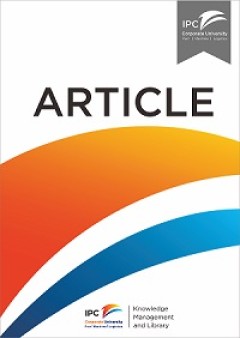Ditapis dengan

An analytical framework for managing container terminals
Abstract: This study aims to empirically develop a reference for terminal operators to evaluate their operational performance. This paper starts with a discussion on container terminal operations and the development of global container terminal operators. In this study, we applied data envelopment analysis (DEA) as a quantitative analytical tool to measure and evaluate the efficiency of globa…
- Edisi
- Int. J. Shipping and Transport Logistics
- ISBN/ISSN
- -
- Deskripsi Fisik
- 18 halaman
- Judul Seri
- An analytical framework for managing container terminals
- No. Panggil
- ATC PO VEN a

Cascading effects, network configurations and optimal transshipment volumes i…
As a consequence of the delivery of large container ships and of the drop in demand since 2008, companies are struggling with low freight rates. In addition, newly delivered container ships have been deployed on the main east–west trades, whereas medium-sized vessels have been pushed to smaller sectors through a phenomenon known as the cascading effect. This article investigates how this effe…
- Edisi
- -
- ISBN/ISSN
- 1476-0592
- Deskripsi Fisik
- 22 p.
- Judul Seri
- Maritime Economics & Logistics
- No. Panggil
- ATC PO CAR c

Slow steaming in container liner shipping: is there any impact on fuel surcha…
Slow steaming has been implemented by the main liner shipping companies since 2008. The reduction in vessel speed affects fuel consumption and should be reflected within the fuel surcharges paid by shippers. The purpose of this paper is to assess if this was the case for the main outbound European container trades from the port of Antwerp.
- Edisi
- Vol. 24 Issue: 1, pp.73-86
- ISBN/ISSN
- -
- Deskripsi Fisik
- 16 p .
- Judul Seri
- The International Journal of Logistics Management
- No. Panggil
- ATC LO NOT s

The impact of competition on container port (in)efficiency
There are many studies on container port efficiency and that seek to understand what factors, such as technical and scale efficiency, private versus public terminal management or macro-economic factors, play on the efficiency score of a given port. There are fewer studies that focus on the role played by the inter-port competitive environment. This role remains difficult to assess. In fact, on …
- Edisi
- -
- ISBN/ISSN
- -
- Deskripsi Fisik
- 10 p.
- Judul Seri
- Transportation Research Part A
- No. Panggil
- ATC LO CAR t
 Karya Umum
Karya Umum  Filsafat
Filsafat  Agama
Agama  Ilmu-ilmu Sosial
Ilmu-ilmu Sosial  Bahasa
Bahasa  Ilmu-ilmu Murni
Ilmu-ilmu Murni  Ilmu-ilmu Terapan
Ilmu-ilmu Terapan  Kesenian, Hiburan, dan Olahraga
Kesenian, Hiburan, dan Olahraga  Kesusastraan
Kesusastraan  Geografi dan Sejarah
Geografi dan Sejarah